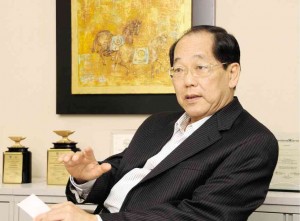CFOs top dogs again in the corporate world
The chief finance officer of yesterday is a different animal from the highest-ranking finance person today and the CFO of tomorrow.
Corporate finance officers of the 1960s and 1970s were mainly concerned about figuring out how the pesos and centavos that went into the company coffers were spent.
CFOs then were also tasked to look for scarce financial resources to bankroll the growth of company operations and make the most of capital.
Back then, interest rates were at double-digits and the financial world was not as interconnected as it is today.
Thus, experts at negotiating the financial labyrinth and correctly tallying where every centavo went were highly prized.
Article continues after this advertisementThey went down a notch on the totem pole over the past 10 years, however, when large corporations started putting operations experts in the corner office and finance professionals took on more of a supporting role, and relegated to the backroom.
Article continues after this advertisementSM Group Chief Finance Officer Jose T. Sio, however, believes that the wheel has again turned and that soon, finance officers will again take on the rank of chief executive officer.
“The role of a chief finance officer continues to transform. I think it is an evolution. Now that we have problems all over the world that are caused more by financial problems, like what happened to Arthur Andersen and the subprime crisis in the United States, there is more of a need for a finance guy to be at the top of the organization,” says Sio, who has been with the SM group for 25 years.
Sio stresses, however, that finance officers’ skill set has likewise evolved over the years, and so has the demands on them by company shareholders.
“The finance person has always been known for taking care of accounting, finance and taxes. But the CFO of today should be more than that. If the CFO will just be in accounting inside the organization, then the problem of the whole organization is being taken care of by the operations people,” says Sio.
“There is nothing wrong with that, but you cannot have a comprehensive picture of how to carry your company forward,” adds the 74-year-old, who was ING Finex CFO of the Year in 2009.
For a company to grow in these times of considerable volatility, when what happens in the United States and Europe will have an adverse effect on domestic conditions, Sio says that management should know how to maximize resources, get the best financing, manage risks and make the most of investments.
The finance experts will be needed to do just that.
“Finance people are again going up the ladder but they have to be more strategic and have a say in the direction of the company,” says Sio, who used to work at SGV and Co. and assigned to handle the books of the SM group, which at that time had just opened its first supermall at North Edsa.
Sio says, however, that the basic principles of business have remained the same, despite the changing complexities of the corporate world.
“You don’t spend more than what you earn and a company should focus on things where you think you have a competitive edge over the others. Do not be influenced by what people think or follow a fad. You should be prudent and conservative and yet open to opportunities,” says Sio, who transferred to the SM group because he saw its growth potential.
“It was not hard to convince me to move and when I moved here, I knew the work is not just accounting. Here, you also have to deal with people and organize the various departments. It has been challenging,” says Sio, who does not plan to retire anytime soon.
“If you are happy with what you are doing, then why retire?” says Sio.
He also has this advice for finance experts who want to get to the top of the corporate ladder: “Do not be content with the accounting and audit aspect. Be relevant and above else, work hard.”
He also tells company owners to look at the “naughty guy” in school.
“It is the naughty guy in school who will become the leader. These are the guys who are willing to take risks,” says Sio.
And as the Chinese say, risk comes hand in hand with opportunity.
